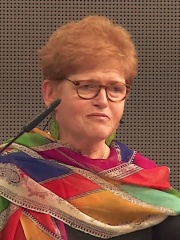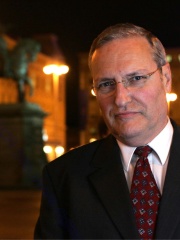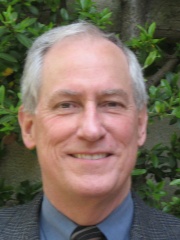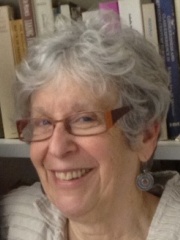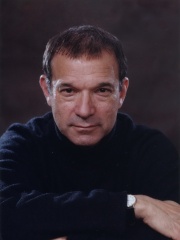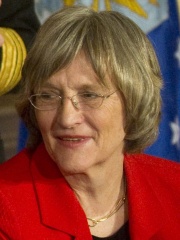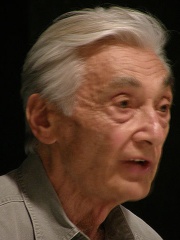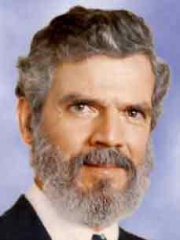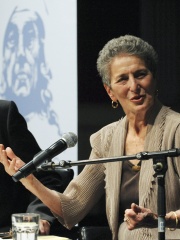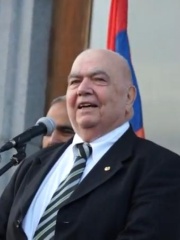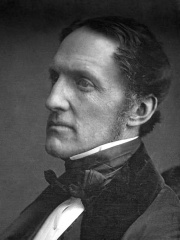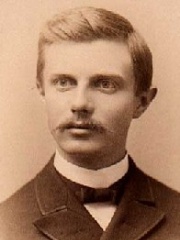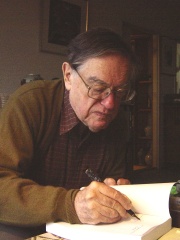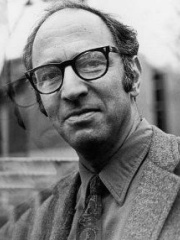
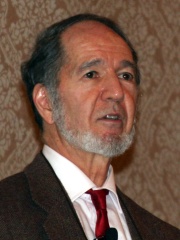
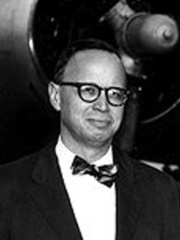

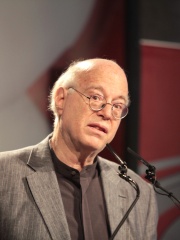
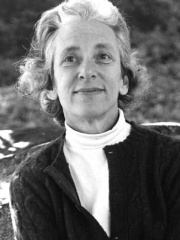


The Most Famous
HISTORIANS from United States
This page contains a list of the greatest American Historians. The pantheon dataset contains 561 Historians, 54 of which were born in United States. This makes United States the birth place of the 4th most number of Historians behind France, and Germany.
Top 10
The following people are considered by Pantheon to be the top 10 most legendary American Historians of all time. This list of famous American Historians is sorted by HPI (Historical Popularity Index), a metric that aggregates information on a biography's online popularity. Visit the rankings page to view the entire list of American Historians.

1. Thomas Kuhn (1922 - 1996)
With an HPI of 76.91, Thomas Kuhn is the most famous American Historian. His biography has been translated into 69 different languages on wikipedia.
Thomas Samuel Kuhn (; July 18, 1922 – June 17, 1996) was an American historian and philosopher of science whose 1962 book The Structure of Scientific Revolutions was influential in both academic and popular circles, introducing the term paradigm shift, which has since become an English-language idiom. Kuhn made several claims concerning the progress of scientific knowledge: that scientific fields undergo periodic "paradigm shifts" rather than solely progressing in a linear and continuous way, and that these paradigm shifts open up new approaches to understanding what scientists would never have considered valid before; and that the notion of scientific truth, at any given moment, cannot be established solely by objective criteria but is defined by a consensus of a scientific community. Competing paradigms are frequently incommensurable; that is, there is no one-to-one correspondence of assumptions and terms. Thus, our comprehension of science can never rely wholly upon "objectivity" alone. Science must account for subjective perspectives as well, since all objective conclusions are ultimately founded upon the subjective conditioning/worldview of its researchers and participants.

2. Jared Diamond (b. 1937)
With an HPI of 70.39, Jared Diamond is the 2nd most famous American Historian. His biography has been translated into 51 different languages.
Jared Mason Diamond (born September 10, 1937) is an American scientist, historian, and author. In 1985 he received a MacArthur Genius Grant, and he has written hundreds of scientific and popular articles and books. His best known is Guns, Germs, and Steel (1997), which received multiple awards including the 1998 Pulitzer Prize for general nonfiction. In 2005, Diamond was ranked ninth on a poll by Prospect and Foreign Policy of the world's top 100 public intellectuals. Originally trained in biochemistry and physiology, Diamond has published in many fields, including anthropology, ecology, geography, and evolutionary biology. In 1999, he received the National Medal of Science, an honor bestowed by the President of the United States and the National Science Foundation. He was a professor of geography at UCLA until his retirement in 2024. Anthropologists have criticized his work as “shallow,” saying he overemphasizes geography and climate.

3. Arthur M. Schlesinger Jr. (1917 - 2007)
With an HPI of 68.11, Arthur M. Schlesinger Jr. is the 3rd most famous American Historian. His biography has been translated into 25 different languages.
Arthur Meier Schlesinger Jr. ( SHLESS-in-jər; born Arthur Bancroft Schlesinger; October 15, 1917 – February 28, 2007) was an American historian, social critic, and public intellectual. The son of the influential historian Arthur M. Schlesinger Sr. and a specialist in American history, much of Schlesinger's work explored the history of 20th-century American liberalism. In particular, his work focused on leaders such as Harry S. Truman, Franklin D. Roosevelt, John F. Kennedy, and Robert F. Kennedy. In the 1952 and 1956 presidential campaigns, he was a primary speechwriter and adviser to the Democratic presidential nominee, Adlai Stevenson II. Schlesinger served as special assistant and "court historian" to President Kennedy from 1961 to 1963. He wrote a detailed account of the Kennedy administration, from the 1960 presidential campaign to the president's state funeral, titled A Thousand Days: John F. Kennedy in the White House, which won the 1966 Pulitzer Prize for Biography or Autobiography. In 1968, Schlesinger actively supported the presidential campaign of Senator Robert F. Kennedy, which ended with Kennedy's assassination in Los Angeles. Schlesinger wrote a popular biography, Robert Kennedy and His Times, several years later. He later popularized the term "imperial presidency" during the Nixon administration in his 1973 book, The Imperial Presidency.

4. Donna Haraway (b. 1944)
With an HPI of 67.42, Donna Haraway is the 4th most famous American Historian. Her biography has been translated into 33 different languages.
Donna Jeanne Haraway (born September 6, 1944) is an American professor emerita in the history of consciousness and feminist studies departments at the University of California, Santa Cruz, and a prominent scholar in the field of science and technology studies. She has contributed to the intersection of information technology and feminist theory, and is a scholar in contemporary ecofeminism. Her work criticizes anthropocentrism, emphasizes the self-organizing powers of nonhuman processes, and explores dissonant relations between those processes and cultural practices, rethinking sources of ethics. Haraway taught women's studies and the history of science at the University of Hawaiʻi (1971–1974) and Johns Hopkins University (1974–1980). She began working as a professor at the University of California, Santa Cruz in 1980 where she became the first tenured professor in feminist theory in the United States. Haraway's works have contributed to the study of both human–machine and human–animal relations. Her work has sparked debate in primatology, philosophy, and developmental biology. Haraway participated in a collaborative exchange with the feminist theorist Lynn Randolph from 1990 to 1996. Their engagement with specific ideas relating to feminism, technoscience, political consciousness, and other social issues, formed the images and narrative of Haraway's book Modest_Witness for which she received the Society for Social Studies of Science's (4S) Ludwik Fleck Prize in 1999. She was also awarded the American Sociological Association's Section on Science, Knowledge and Technology's Robert K. Merton Award in 1992 for her work Primate Visions: Gender, Race, and Nature in the World of Modern Science. In 2017, Haraway was awarded the Wilbur Cross Medal, one of the highest honors for alumni of Yale University. In 2021, Haraway received the Nuevo León Alfonso Reyes Prize for imagining new horizons for the fusion of science, humanities, biology, and philosophy. In 2025, she was awarded the Erasmus Prize.
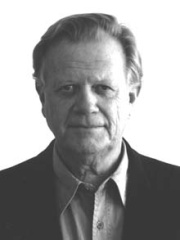
5. Hayden White (1928 - 2018)
With an HPI of 64.77, Hayden White is the 5th most famous American Historian. His biography has been translated into 31 different languages.
Hayden V. White (July 12, 1928 – March 5, 2018) was an American historian in the tradition of literary criticism, perhaps most famous for his work Metahistory: The Historical Imagination in Nineteenth-Century Europe (1973/2014).

6. Richard Sennett (b. 1943)
With an HPI of 64.45, Richard Sennett is the 6th most famous American Historian. His biography has been translated into 25 different languages.
Richard Sennett (born 1 January 1943) is an American sociologist who is the Centennial Professor of Sociology at the London School of Economics and former University Professor of the Humanities at New York University. He is currently a Senior Fellow of the Center on Capitalism and Society at Columbia University. Sennett has studied social ties in cities, and the effects of urban living on individuals in the modern world. He has been a Fellow of The Center for Advanced Study in the Behavioral Sciences, of the American Academy of Arts and Sciences, and of the Royal Society of Literature. He is the founding director of the New York Institute for the Humanities.

7. Barbara W. Tuchman (1912 - 1989)
With an HPI of 64.12, Barbara W. Tuchman is the 7th most famous American Historian. Her biography has been translated into 43 different languages.
Barbara Wertheim Tuchman (; January 30, 1912 – February 6, 1989) was an American historian, journalist and author. She won the Pulitzer Prize twice, for The Guns of August (1962), a best-selling history of the prelude to and the first month of World War I, and Stilwell and the American Experience in China (1971), a biography of General Joseph Stilwell. Tuchman focused on writing popular history. Tuchman was a member of the Writers and Artists for Peace in the Middle East, a pro-Israel group. In 1984, she signed a letter protesting German arms sales to Saudi Arabia.

8. Timothy D. Snyder (b. 1969)
With an HPI of 64.09, Timothy D. Snyder is the 8th most famous American Historian. His biography has been translated into 38 different languages.
Timothy David Snyder (born August 18, 1969) is an American historian specializing in the history of Central and Eastern Europe, the Soviet Union, and the Holocaust. He holds the inaugural Chair in Modern European History, supported by the Temerty Endowment for Ukrainian Studies, at the Munk School of Global Affairs and Public Policy at the University of Toronto. From 2017 to 2025 he was also the Richard C. Levin Professor of History at Yale University. He is a permanent fellow at the Institute for Human Sciences in Vienna. Snyder serves on the Committee on Conscience of the United States Holocaust Memorial Museum, and is a member of the Council on Foreign Relations. Snyder has written many books, including Bloodlands: Europe Between Hitler and Stalin (2010), On Tyranny: Twenty Lessons from the Twentieth Century (2017), The Road to Unfreedom (2018), and Our Malady (2020). Several of these have been described as best-sellers.

9. Christopher Browning (b. 1944)
With an HPI of 62.09, Christopher Browning is the 9th most famous American Historian. His biography has been translated into 22 different languages.
Christopher Robert Browning (born May 22, 1944) is an American historian and professor emeritus of history at the University of North Carolina at Chapel Hill (UNC). A specialist on the Holocaust, Browning is known for his work documenting the Final Solution, the behavior of those implementing Nazi policies, and the use of survivor testimony. He is the author of nine books, including Ordinary Men (1992) and The Origins of the Final Solution (2004). Browning taught at Pacific Lutheran University from 1974 to 1999 and eventually became a Distinguished Professor. In 1999, he moved to UNC to accept the appointment as Frank Porter Graham Professor of History, and in 2006 he was elected a Fellow of the American Academy of Arts and Sciences. After retiring from UNC in 2014, he became a visiting professor at the University of Washington in Seattle. Browning has acted as an expert witness at several Holocaust-related trials, including the second trial of Ernst Zündel (1988) and Irving v Penguin Books Ltd (2000).
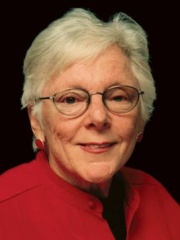
10. Linda Nochlin (1931 - 2017)
With an HPI of 61.98, Linda Nochlin is the 10th most famous American Historian. Her biography has been translated into 24 different languages.
Linda Nochlin (née Weinberg; January 30, 1931 – October 29, 2017) was an American art historian, Lila Acheson Wallace Professor Emerita of Modern Art at New York University Institute of Fine Arts, and writer. As a prominent feminist art historian, she became well known for her pioneering 1971 article "Why Have There Been No Great Women Artists?" published by ARTnews.
People
Pantheon has 55 people classified as American historians born between 1796 and 1970. Of these 55, 19 (34.55%) of them are still alive today. The most famous living American historians include Jared Diamond, Donna Haraway, and Richard Sennett. The most famous deceased American historians include Thomas Kuhn, Arthur M. Schlesinger Jr., and Hayden White. As of April 2024, 1 new American historians have been added to Pantheon including Kim Ryholt.
Living American Historians
Go to all RankingsJared Diamond
1937 - Present
HPI: 70.39
Donna Haraway
1944 - Present
HPI: 67.42
Richard Sennett
1943 - Present
HPI: 64.45
Timothy D. Snyder
1969 - Present
HPI: 64.09
Christopher Browning
1944 - Present
HPI: 62.09
Deborah Lipstadt
1947 - Present
HPI: 61.07
Efraim Zuroff
1948 - Present
HPI: 59.10
Robert Darnton
1939 - Present
HPI: 58.19
Joan Wallach Scott
1941 - Present
HPI: 56.64
Stanley G. Payne
1934 - Present
HPI: 56.54
Stephen Greenblatt
1943 - Present
HPI: 55.97
Drew Gilpin Faust
1947 - Present
HPI: 55.31
Deceased American Historians
Go to all RankingsThomas Kuhn
1922 - 1996
HPI: 76.91
Arthur M. Schlesinger Jr.
1917 - 2007
HPI: 68.11
Hayden White
1928 - 2018
HPI: 64.77
Barbara W. Tuchman
1912 - 1989
HPI: 64.12
Linda Nochlin
1931 - 2017
HPI: 61.98
Howard Zinn
1922 - 2010
HPI: 61.58
Rudolph Rummel
1932 - 2014
HPI: 60.30
Natalie Zemon Davis
1928 - 2023
HPI: 60.29
Richard G. Hovannisian
1932 - 2023
HPI: 60.14
William H. Prescott
1796 - 1859
HPI: 60.09
Frederick Jackson Turner
1861 - 1932
HPI: 59.98
Donald Keene
1922 - 2019
HPI: 58.17
Newly Added American Historians (2025)
Go to all RankingsOverlapping Lives
Which Historians were alive at the same time? This visualization shows the lifespans of the 25 most globally memorable Historians since 1700.

